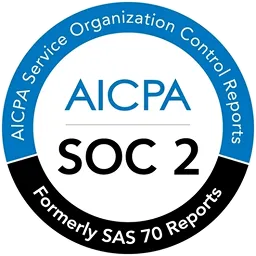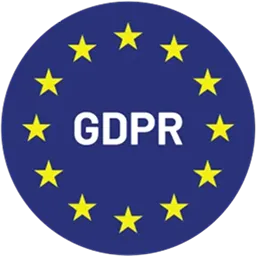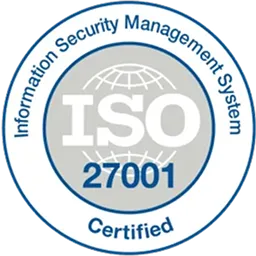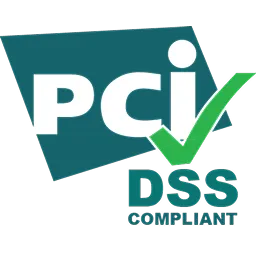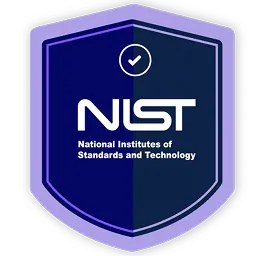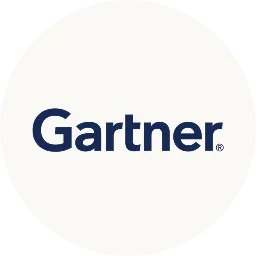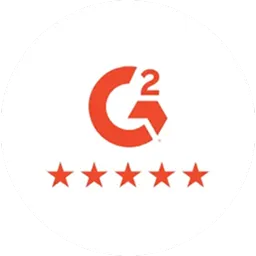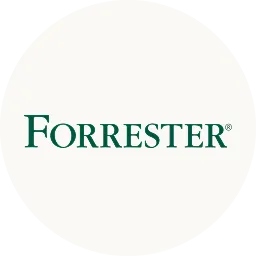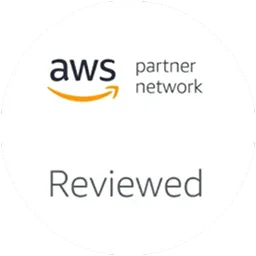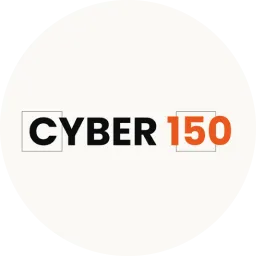Collaboration and device compatibility, have become paramount for IT managers aiming to maintain a competitive edge. Cloud content management platforms have emerged as essential tools to address these needs.
Among them, Box stands out as a versatile solution that facilitates file sharing and access across various devices and offers sophisticated features like data governance and retention.
To further enhance the management of Box and optimize its utilization, its integration with Zluri proves to be invaluable.
Imagine in your multinational corporation with teams spread across different geographical locations; the departments collaborate on numerous projects, often requiring simultaneous access to files and documents.
However, the existing infrastructure lacks a streamlined method for sharing and managing these assets. Employees resort to emailing files, leading to version control issues, confusion, and overall inefficiency in information sharing.
Furthermore, compliance and data security are pressing concerns, particularly given the nature of the industry in which the corporation operates in. Sensitive documents must be safeguarded while ensuring the right individuals have access. Manual data governance processes are proving to be error-prone, putting your organization at risk of data breaches and non-compliance with industry regulations.
This is where Box comes into play as a comprehensive solution that addresses the pain points faced by the corporation and revolutionizes content management. Box is established as a prominent cloud content management platform that offers solutions to both simple and complex content-related challenges.
From seamless file sharing on mobile devices to advanced business process management, Box addresses a wide range of content needs. Its capabilities extend beyond basic file storage, enabling you and your teams to streamline workflows, enhance collaboration, and ensure data security.
Zluri provides a centralized dashboard for IT teams to effectively manage various SaaS applications to complement Box's capabilities and optimize its usage.
Through direct integration with Box, Zluri enables your teams to maximize their usage of Box licenses and features, providing a more granular understanding of user engagement and preferences. This integration serves as a catalyst for improved operational efficiency and cost optimization.

The integration of Zluri with Box presents a host of features that elevate content management and license optimization. Let’s explore:
How To Get More Out of Zluri + Box Integration
The integration of Zluri with Box emerges as a transformative solution that addresses challenges head-on and revolutionizes how your team approach collaboration. Here's an in-depth exploration of how this integration is poised to reshape collaboration management:
1. Monitoring licensed users and their frequency of Box usage
Understanding how licenses are being utilized and by whom is a puzzle that often eludes your organization. The integration of Zluri with Box is the missing piece that illuminates this complex picture. By directly linking Zluri's insights with Box's platform, your teams gain unprecedented visibility into licensed users and their interaction habits.
This integration transforms the enigma of licensing allocation into a well-informed science. It unveils the usage patterns of licensed users within the Box platform, demystifying the allocation process. Decision-makers can now leverage hard data to guide resource distribution, eradicating the guesswork that often leads to inefficiency.

Through this data-driven approach, the integration empowers organizations to distinguish active users from those who need attention. Armed with these insights, your teams can adjust their licensing strategies based on actual usage, avoiding wasteful overspending and making sure every resource is put to productive use.
The integration propels you toward a future where licenses are allocated with precision and resources are optimized for maximum utility.
2. Automation of user provisioning and deprovisioning processes
The conventional approach to user account management often involves manual interventions, leading to potential inaccuracies, delays, and security vulnerabilities. Employee onboarding can be slowed down due to account creation processes, and offboarding can result in lingering access, posing data security risks.
These challenges consume valuable time, resources, and, most critically, expose organizations to unnecessary risks.
The integration of Zluri with Box reshapes the landscape of user account management. It provides a strategic solution that simplifies not only the processes of onboarding and offboarding but also magnifies data security, precision, and adherence to compliance standards.

Through this integration, you can guarantee that your workforce possesses the exact access needed at all times while safeguarding vital data against unauthorized exposure. The transformation is evident: from intricate manual processes to efficient automation and from security vulnerabilities to fortified data protection.
3. Configuration of groups using employee attributes from Zluri
Creating effective groups for streamlined teamwork is often hindered by complexities. Traditional methods of forming groups, often reliant on manual processes or generic criteria, don't cater to the diverse attributes that define an organization's structure.
The integration of Zluri with Box introduces a groundbreaking solution to this pain point. By tapping into the employee attributes stored in Zluri, your teams can now create collaboration groups that align precisely with their operational dynamics.
These attributes, such as department, role, or other defining characteristics, act as the building blocks for assembling teams that work cohesively.


This integration is more than just grouping; it's about elevating teamwork to a strategic level. By leveraging insights from Zluri's data-driven approach, your teams can craft groups that adapt dynamically to real-world changes. As the business landscape evolves, so can these group configurations.
This means that collaboration strategies remain in perfect harmony within your organization, ensuring a seamless alignment between teamwork and progress.
4. Flexibility in designing group criteria based on Zluri's data fields
The conventional approach to collaboration often falls short when confronted with the dynamic shifts and changes that modern business experiences. Teams evolve, roles transform, and projects take on new dimensions. This fluidity challenges you to maintain an efficient collaboration structure that keeps pace with these changes.
The integration of Zluri and Box serves as a dynamic solution that fosters collaboration adaptability. By introducing the option to design group criteria based on Zluri's data fields, businesses can align their collaboration structure with the evolving realities of their organization. This translates to a collaborative environment that remains not only relevant, but also highly efficient.

The adaptability offered by this integration extends far beyond immediate convenience. It's a strategic maneuver that safeguards collaboration management in the face of uncertainty. With the power to pivot and adjust collaboration groups as needed, organizations are equipped to navigate any changes that may come their way.
Wondering how you can integrate Box with Zluri? You can do it in just 2 simple steps:
How to Integrate Box With Zluri In 2 Easy Steps
Step 1: Tailoring Scopes for Box Integration
To seamlessly amalgamate the robust capabilities of Zluri with the Box platform, it's crucial to embark on the integration journey by carefully selecting the appropriate scopes. The scopes act as defining parameters that dictate the extent of interaction between the two systems.
Zluri's versatile feature set, encompassing functions like data discovery, workflows, SAML, and license management, empowers users to customize their integration experience based on their unique operational demands.

For those seeking a hassle-free approach, Zluri provides an option to adhere to default scope settings, expediting the integration process without compromising the depth of functionality.
Step 2: Establishing a Cohesive Connection with Box and Persisting the Authorized Instance
Integrating Box with Zluri involves a meticulous process of obtaining authorization from the Box admin. This integral step ensures the security and legitimacy of the integration. Admins are pivotal in granting access permissions, safeguarding sensitive data, and maintaining a controlled integration environment.
Should you possess the requisite Box credentials, self-authorization is a viable route. Alternatively, if teamwork is preferred, extending an invitation to a colleague facilitates their participation in the authorization process.

Upon successfully establishing the integration, Zluri provides an avenue to preserve this connected instance. The platform's user-friendly interface allows for storing and managing these instances, streamlining subsequent interactions between Box and Zluri.
Moreover, Zluri's integration framework can accommodate multiple instances of the integration. This allows you to tailor each instance with additional scopes, effectively fine-tuning the integration to align with specific use cases and evolving operational needs. The modularity of this approach contributes to a dynamic integration ecosystem that can scale and adapt as the organization's requirements evolve.
Zluri Permissions & Actions in Box: Streamlining Administrative Tasks
Learn how Zluri's permissions and actions simplify various administrative tasks, enhancing the management of users, groups, files, and folders.
Managing App Users:
- Zluri uses this permission to make changes to user logins, reset passwords, and modify roles for users who are under management within the Box system.
- Purpose: Effectively handle user account administration.
Managing Enterprise Properties:
- Zluri uses this permission to view the flow of events within the enterprise, edit enterprise attributes, generate reports, and control device pins.
- Purpose: Oversee and manage enterprise settings and operations.
Managing Groups:
- Zluri uses this permission to create, update, and delete groups, as well as manage the members of those groups.
- Purpose: Organize and maintain control over groups within the system.
Managing Users:
- Zluri uses this permission to modify user logins, reset passwords, and adjust roles for users under management.
- Purpose: Handle various user-related tasks with flexibility.
Reading All Files & Folders:
- Zluri uses this permission to access information about all files and folders stored within Box.
- Purpose: Retrieve comprehensive details about files and folders.
Reading and Writing All Files & Folders:
- Used specifically for the \"Transfer Owned Folders\" action in Zluri's workflows.
- Purpose: Facilitate the process of transferring ownership of folders between users.
In a world where collaboration and compatibility drive productivity, integrating Box with Zluri emerges as a strategic move if you’re seeking enhanced content management. This collaboration optimizes the use of Box licenses and empowers your teams to enforce policies, identify inefficiencies, and maintain data security.
By leveraging the combined power of Box and Zluri, you can navigate the complexities of content management with greater efficiency and confidence. Book a demo now!









.svg)



